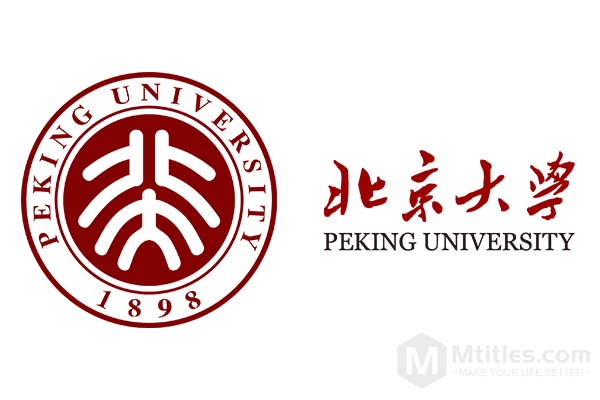Cyber Security Development status

Development status
With the rapid development of computer technology, information networks have become an important guarantee for social development. A lot of it is sensitive information, even state secrets. Therefore, it will inevitably attract various man-made attacks from all over the world (such as information leakage, information theft, data tampering, data deletion, computer viruses, etc.). At the same time, network entities have to withstand tests such as floods, fires, earthquakes, and electromagnetic radiation.
On February 4, 2012, the hacker group Anonymous released a 17-minute recording of a work call between the US FBI and the London Police Agency on January 17th. The main content is that the two sides discussed how to find evidence and arrest Anonymous, LulzSec, Antisec , CSL Security and other black hat hackers, and sensitive content involving underage hackers is covered up.
The FBI has confirmed the authenticity of the call recording, and security researchers have begun to solve the vulnerability of the conference call system.
On February 13, 2012, a series of government websites were allegedly attacked by the Anonymous organization, and the official CIA website was hacked for 9 hours on Friday. This organization had previously intercepted a confidential telephone conversation between the London Police and the FBI, and then uploaded it to the Internet.
Tech dominance increases
In all areas, new technologies continue to surpass the previous latest technologies. Portable computers and mobile phones with Internet access enable users to send and receive emails and browse the web 24 hours a day, 7 days a week.
Impact on information warfare and operations: The continuous strengthening of technological dominance is the fundamental foundation of cyber warfare. Complex and often subtle technologies have increased the wealth of the world and increased global efficiency. However, it also makes the world relatively fragile, because it is very difficult to maintain the operation of the industry and support systems when unexpected circumstances cause computer control and monitoring to become chaotic, and the possibility of such chaos is rapidly increasing. According to the futuristic scholar Joseph Coates, “a situation that is often overlooked is the use of information technology by criminal organizations.” In 2015, the Mafia electronically eliminated a mid-sized company in Texas or Nebraska. All the records of the bank, and then quietly visited the websites of several large financial service institutions, and issued a simple message: "That is what we did-you may be the next goal. Our wish is to protect you."
Futurist scholar Stephen Steele pointed out: "The network system... is not just information, but network culture. Multi-level coordinated cyber attacks will be able to carry out large (national security systems), medium (local power grids), and small at the same time. (Car launch) Scale of destruction."
Communication technology lifestyle
Telecommunications is developing rapidly, mainly due to e-mail and other forms of high-tech communications. However, in most cases, emails are no longer used, and they prefer to use instant messaging and social networking sites to communicate with peers. These technologies and other new technologies are building a complex and extensive society almost exactly the same as in the real world.
Impact on information warfare and operations: This is one of the two or three key trends that make information warfare and operations important.
The damage may not be blatant or easy to detect. As the production system is increasingly open to customers' direct input, it is possible to modify the computer-controlled machine tool program to produce slightly out-of-specification products-or even modify the specifications yourself, so that product differences will never be noticed. If you have enough imagination when making this kind of tampering and carefully choose the target, you can imagine that these products will pass the inspection smoothly, but they will definitely not pass the battlefield inspection, which will bring unimaginable military consequences.
Lawrence Vogel, an information technology and business management consultant, warns of cloud computing (third-party data storage and service-oriented computing) and the use of Web2.0 (social networking and interactivity). He said: "The cybersecurity impacts associated with cloud computing are worth noting, whether it is public or private cloud computing. As more companies and governments adopt cloud computing, they will be more vulnerable to sabotage and cyber attacks. This may Leading to the destruction of services and rapid important software application capabilities. In addition, due to the widespread use of Facebook, blogs and other social networks in our personal lives, government organizations are also seeking similar capabilities to communicate and interact with their related parties. Once the government allows them to With interactive and two-way communication on the Internet, the risk of cyber attacks will increase accordingly."
The global economy is increasingly integrated
Key factors in this regard include the rise of multinational companies, the weakening of national identity (for example, within the EU), the development of the Internet, and the outsourcing of online work in low-wage countries.
Impact on information warfare and operations: The Internet, private networks, virtual private networks, and a variety of other technologies are uniting the earth into a complex "information space." Once these nearly unlimited connections are interrupted, they will inevitably cause serious damage to the company and even the national economy.
Research and development
(R&D) The role of promoting global economic growth is increasing, and the total R&D expenditure in the United States has steadily increased over the past 30 years. China, Japan, the European Union and Russia are also showing similar trends. Impact on information warfare and operations: This trend has promoted the speed of technological progress in recent decades. This is another key factor in the development of information warfare. The main product of R&D is not commodities or technology, but information. Even the most confidential part of research results is generally stored in a computer, transmitted through the enterprise's intranet, and generally transmitted over the Internet. This accessibility provides an excellent target for spies—whether it is an industrial spy or a military spy. Technological changes are accelerating with new generations of inventions and applications.
In the rapidly developing design discipline, most of the latest knowledge acquired in the first grade of college students is out of date by the time of graduation. The design and sales cycle-conception, invention, innovation, imitation-is constantly shortening. In the 1940s, the product cycle lasted for 30 to 40 years. Today, thirty to forty weeks are rare.
The reason is simple: about 80% of past scientists, engineers, technicians, and doctors are still alive today—exchanging opinions in real time on the Internet.
The development of machine intelligence will also have a complex impact on network security. According to Bruce Raduk, a knowledge theorist and futuristic scholar, "Knowledge creation is a process that can be repeated by humans, and it is also a process that can be repeated by machines or in a human-computer interaction system." Artificial knowledge creation will usher in a "surprise" Point” instead of artificial intelligence, or basic artificial intelligence (or technological progress itself). Artificial intelligence can be realized by any computer, because the definition of intelligence is knowledge that is stored and can be retrieved (through a human or a computer). (Artificial knowledge creation) The newest reach of technology will drive the entire paradigm shift.







